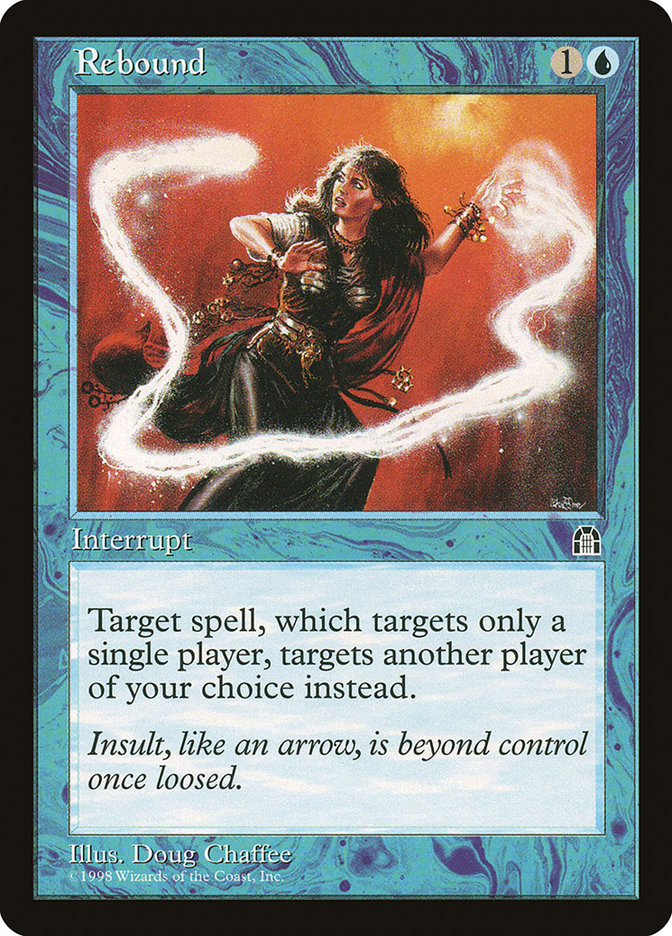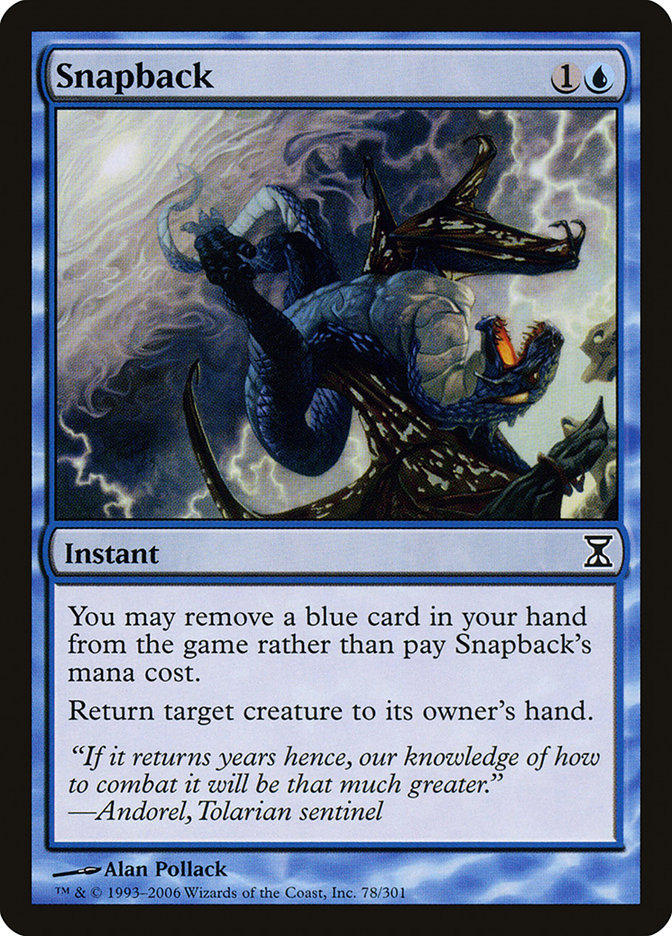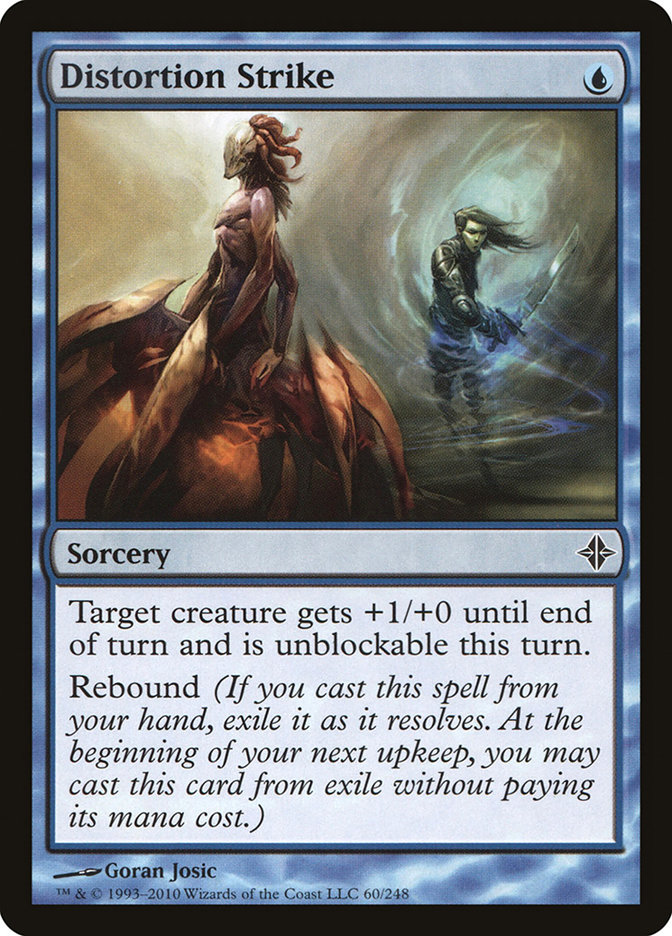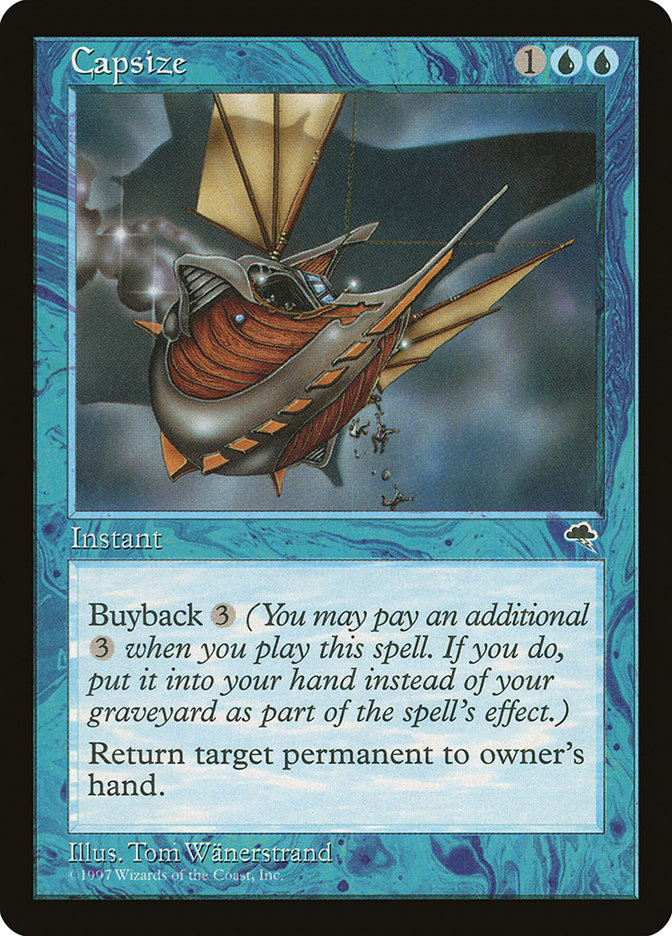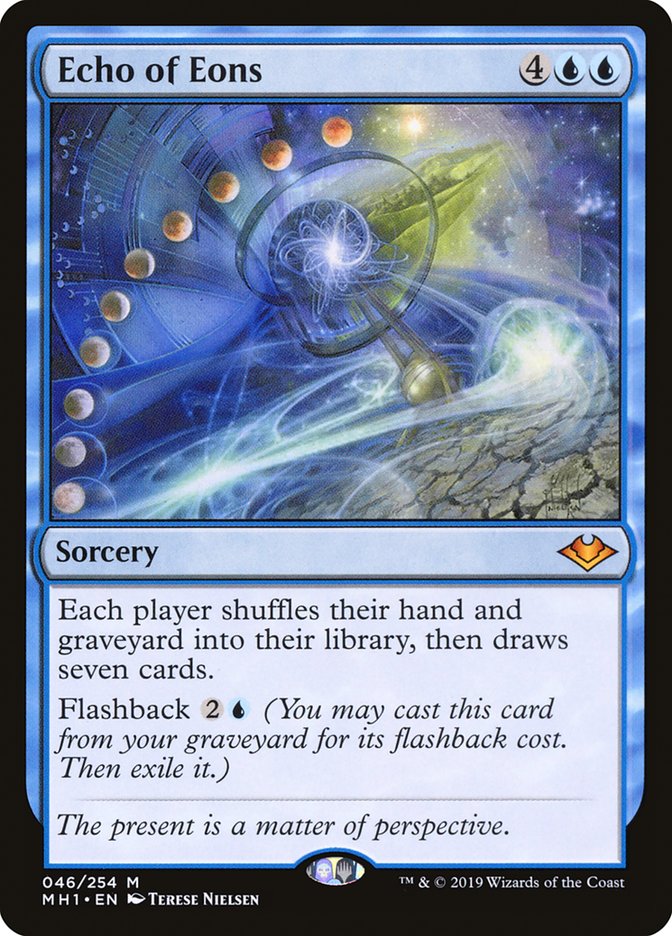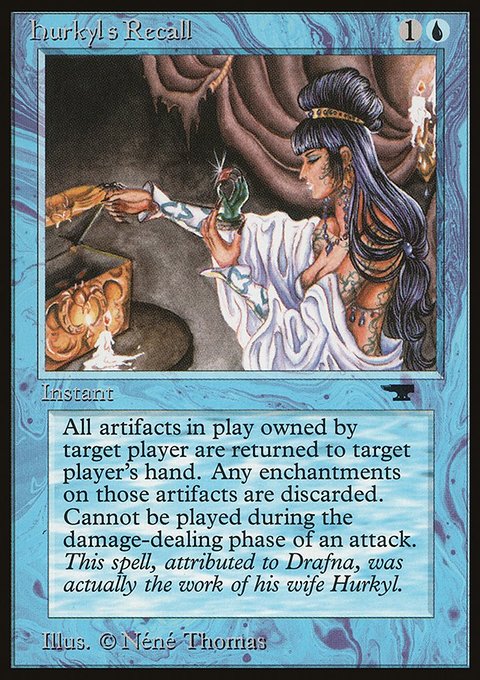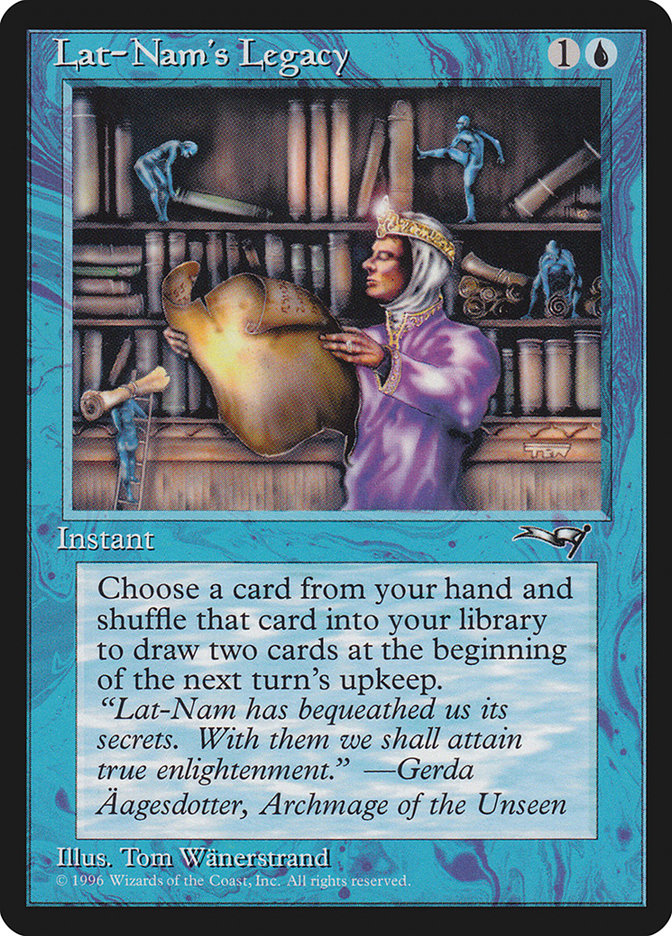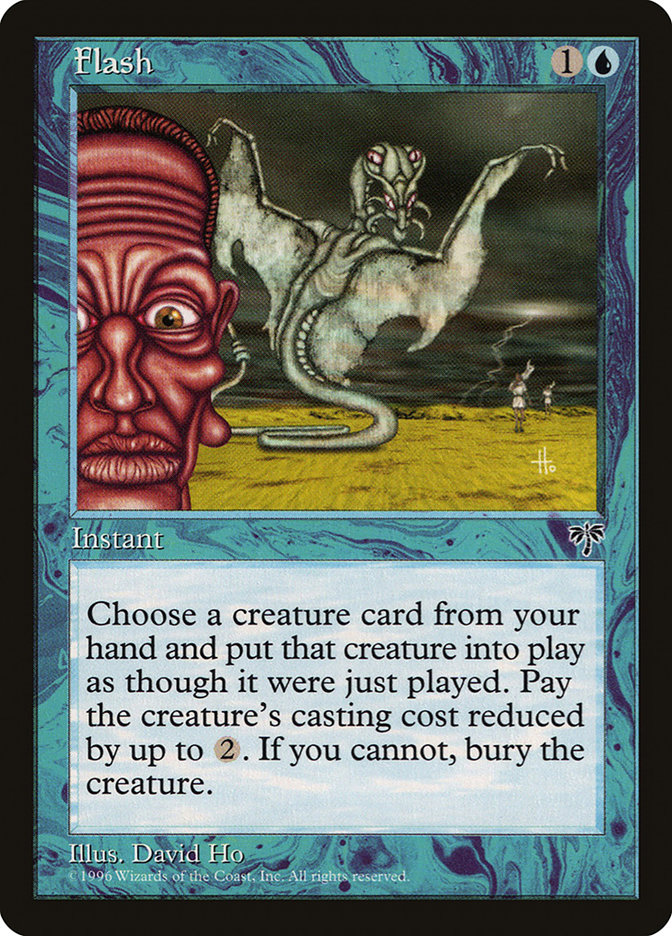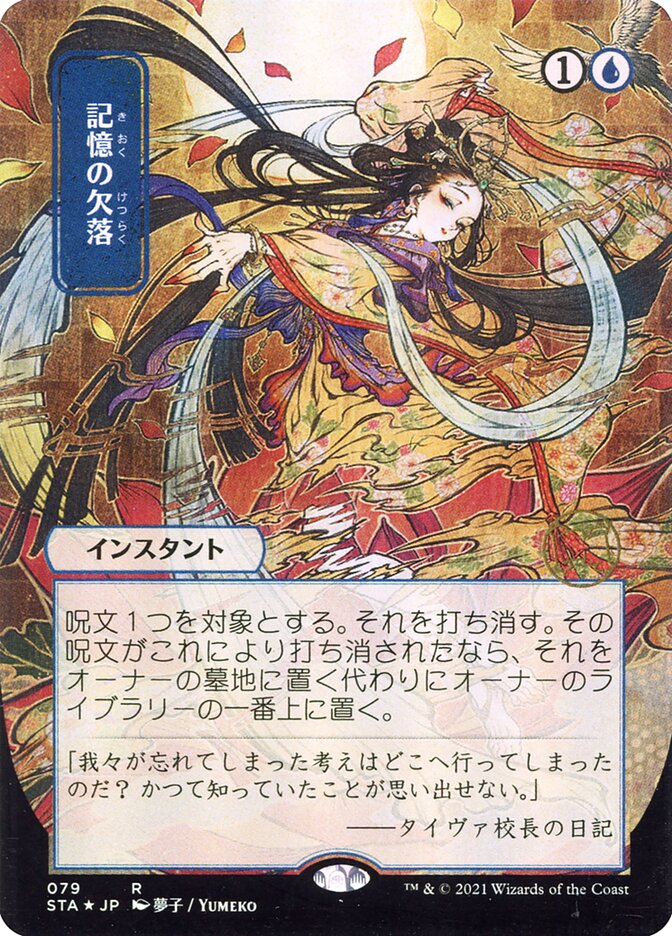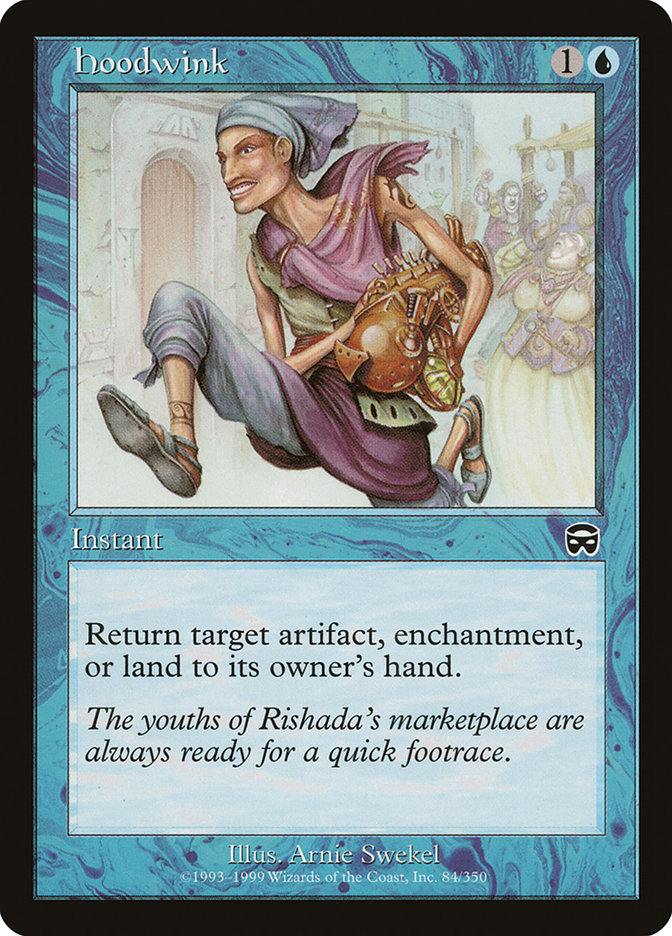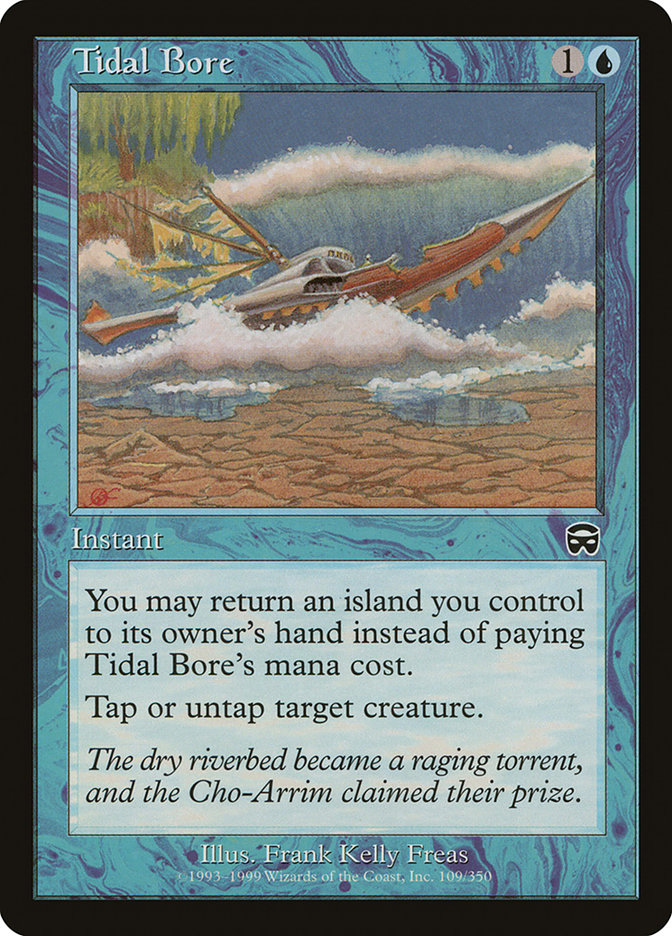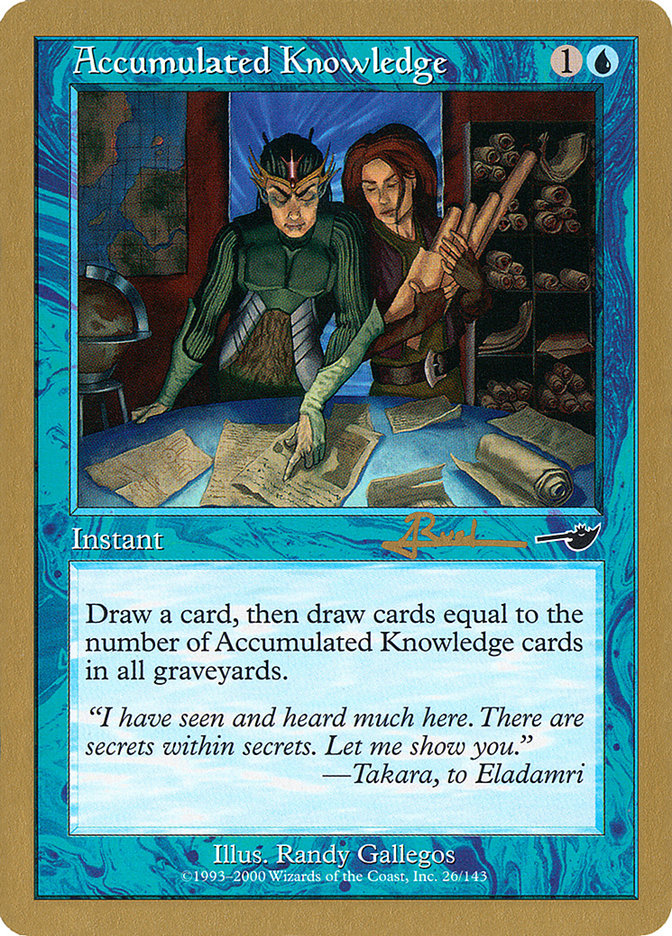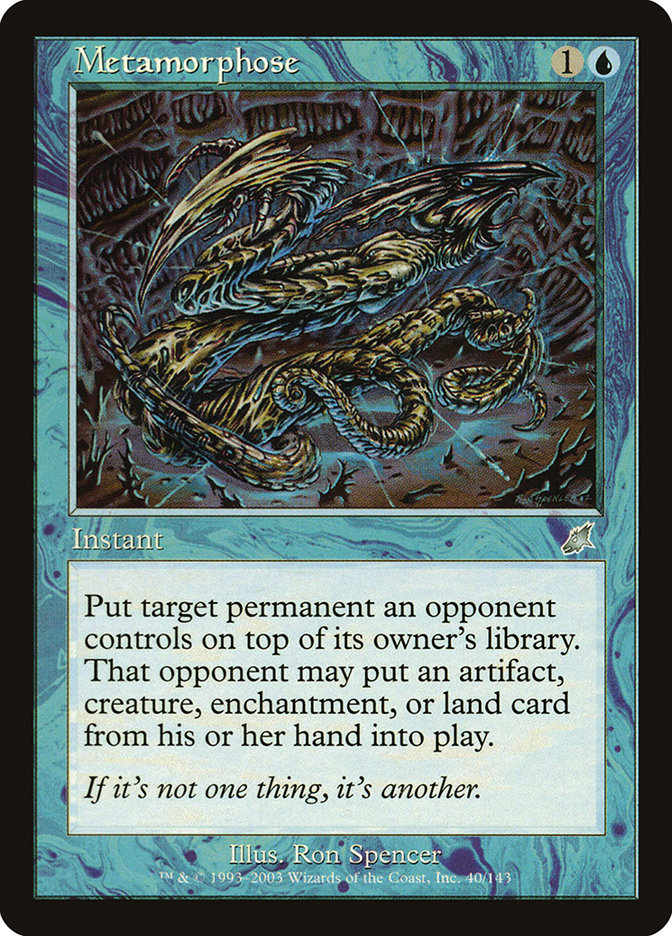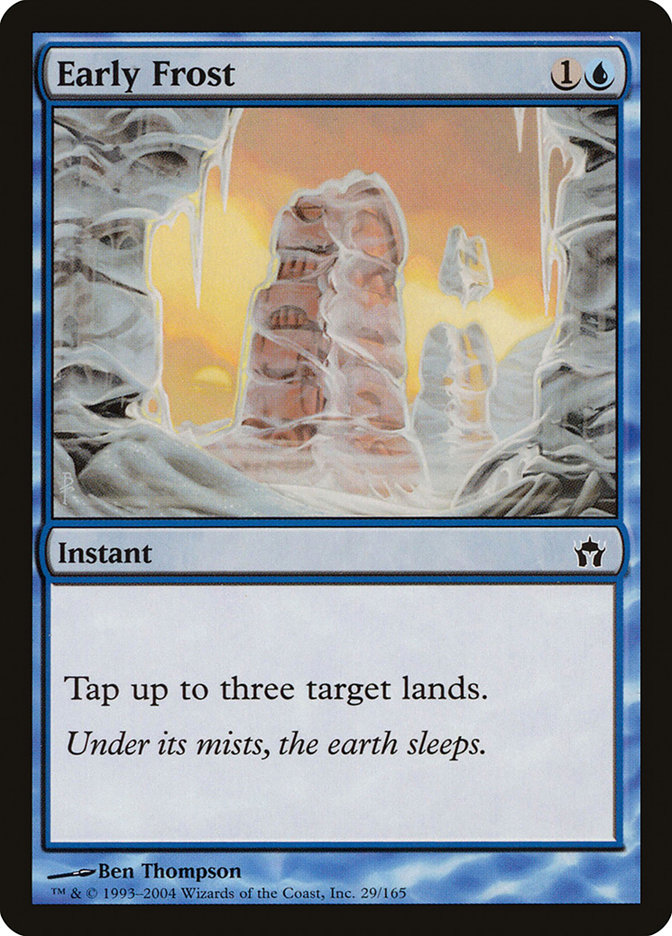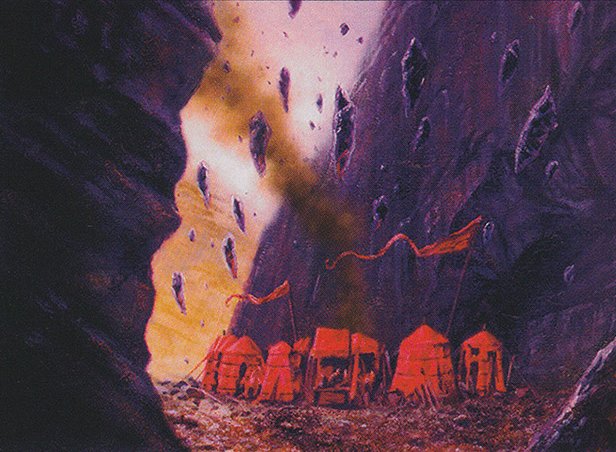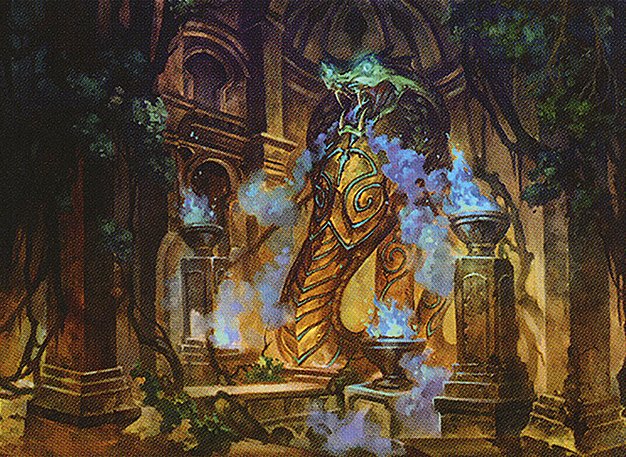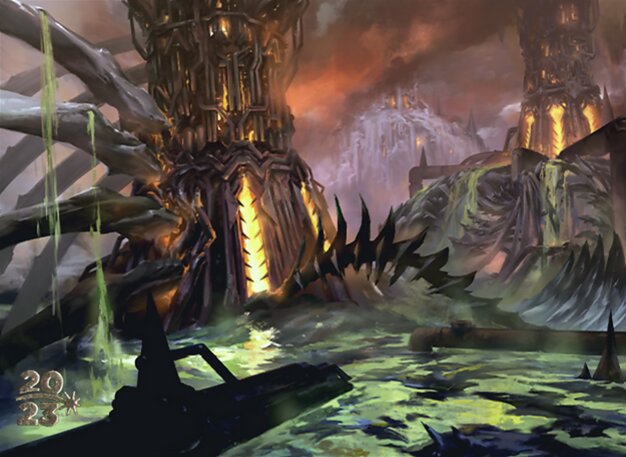Rebound MTG Card
| Mana cost | |
| Converted mana cost | 2 |
| Rarity | Uncommon |
| Type | Instant |
| Released | 1998-03-02 |
| Set symbol | |
| Set name | Stronghold |
| Set code | STH |
| Number | 40 |
| Frame | 1997 |
| Layout | Normal |
| Border | Black |
| Illustred by | Doug Chaffee |
Key Takeaways
- Rebound grants two benefits from one card, enhancing value and strategic depth in gameplay.
- Enables resource savings for other plays but requires careful color mana management.
- Potent in spell-heavy decks, reshaping opponent tactics and contributing to meta relevance.
Text of card
Target spell, which targets only a single player, targets another player of your choice instead.
Insult, like an arrow, is beyond control once loosed.
Card Pros
Card Advantage: With rebound, you’re essentially getting two spells for the price of one. The initial cast followed by the free cast in your next upkeep gives you an added edge by maximizing the utility of a single card.
Resource Acceleration: Rebound offers a unique form of resource acceleration without demanding additional mana investment during the subsequent turn, leaving your resources free for other strategic plays.
Instant Speed: If a rebound card is instant, you gain the flexibility of casting it at the most opportune moment—perhaps at the end of your opponent’s turn—and then enjoying its effects once again on your following turn, all while keeping your mana untapped for other actions.
Card Cons
Discard Requirement: Rebound mechanic demands precise timing and strategic planning. If you’re forced to discard, this can disrupt your game plan, especially if you’re relying on the rebound card to be the pivot of your strategy.
Specific Mana Cost: Cards with rebound often have strict colored mana requirements, making them harder to play in multicolored decks and potentially restricting their inclusion to decks that can produce the necessary mana without strain.
Comparatively High Mana Cost: Rebound cards typically have elevated mana costs due to their potential for a repeat effect. This can be a downside in fast-paced games where mana efficiency is key, and other cards might provide more immediate impact for the same or lesser investment.
Reasons to Include in Your Collection
Versatility: Rebound cards in MTG are known for their ability to offer twice the value for a single card slot. They work exceptionally well in decks focused on spell casting or those aiming for value over time, providing strategic advantages across multiple turns.
Combo Potential: Cards with rebound create opportunities to synergize with cast triggers or spellslinger decks. They help in setting up combinations that can exploit the double-casting feature, leading to game-changing turns and complex plays.
Meta-Relevance: Depending on the pace of the game, rebound provides consistent threats that require an answer from opponents. They often necessitate a shift in the opponent’s playstyle, making them relevant in environments where tempo and card advantage are crucial.
How to beat
Rebound is a powerful mechanic from Magic: The Gathering that allows a player to cast spells twice—once during your turn and again at the beginning of your next upkeep without any additional mana cost. Defeating a card with rebound requires a strategy to mitigate its double-threat effectiveness. Counterplay can be achieved either by counteracting the spell itself when it’s first cast or dealing with the repercussions on the subsequent turn. For instance, utilizing counterspells like Negate or Disallow can nip the issue in the bud by targeting the spell during its initial casting phase.
An alternative strategy involves disrupting the game state so the rebound effect becomes less potent. This can be accomplished by removing the targets with removal spells or by deploying effects that prevent the player from casting spells during the rebound phase. Cards like Leonin Arbiter hinder search mechanics, a common rebound target, while Teferi, Time Raveler can completely lock out rebound spells cast from the graveyard. The key to triumphing over rebound lies in anticipating your opponent’s move and having a well-timed response at the ready.
In summary, while rebound cards can be challenging, effective counters and preemptive plays are the secrets to mastering your games against such mechanics in Magic: The Gathering. Adaptability and strategic foresight will ensure these threats are managed and victory is within reach.
Cards like Rebound
Rebound is a mechanic that allows players to cast spells twice in MTG, significantly impacting both casual and competitive play. When you compare it to cards like Snapback, a spell with a free casting cost if you return a blue card from your hand to the top of your library, Rebound offers a different kind of value. While Snapback can be a surprise play, a Rebound card like Distortion Strike grants repetitive advantage, enhancing a creature’s ability to deal damage two turns in a row.
Another card to consider is Buyback, found on spells like Capsize. This allows a player to return the spell from the graveyard to their hand by paying an additional cost, enabling repeated use. However, Rebound automates a second cast upon exile as part of its normal resolution, providing a sleeker sequence of plays without additional mana investments after the initial cast. Moreover, Echo of Eons, with its Timetwister-like effect on gameplay, does not offer the recurrence that Rebound provides. Echo of Eons reshuffles the hand and graveyard into the library, but lacks the iterative gameplay feather that Rebound cards bring to the table.
When considering the methods of repeated advantage in MTG, Rebound’s dual cast ability holds its own, providing strategic depth to the game and ensuring that its allure remains ever-present within the tapestry of spell effects across the multiverse.
Cards similar to Rebound by color, type and mana cost
Where to buy
If you're looking to purchase Rebound MTG card by a specific set like Stronghold, there are several reliable options to consider. One of the primary sources is your local game store, where you can often find booster packs, individual cards, and preconstructed decks from current and some past sets. They often offer the added benefit of a community where you can trade with other players.
For a broader inventory, particularly of older sets, online marketplaces like TCGPlayer, Card Kingdom and Card Market offer extensive selections and allow you to search for cards from specific sets. Larger e-commerce platforms like eBay and Amazon also have listings from various sellers, which can be a good place to look for sealed product and rare finds.
Additionally, Magic’s official site often has a store locator and retailer lists for finding Wizards of the Coast licensed products. Remember to check for authenticity and the condition of the cards when purchasing, especially from individual sellers on larger marketplaces.
Below is a list of some store websites where you can buy the Rebound and other MTG cards:
- eBay
- TCG Player
- Card Kingdom
- Card Market
- Star City Games
- CoolStuffInc
- MTG Mint Card
- Hareruya
- Troll and Toad
- ABU Games
- Card Hoarder Magic Online
- MTGO Traders Magic Online
See MTG Products
Legalities
Magic the Gathering formats where Rebound has restrictions
| Format | Legality |
|---|---|
| Commander | Legal |
| Legacy | Legal |
| Oathbreaker | Legal |
| Premodern | Legal |
| Vintage | Legal |
| Duel | Legal |
| Predh | Legal |
| Penny | Legal |
Rules and information
The reference guide for Magic: The Gathering Rebound card rulings provides official rulings, any errata issued, as well as a record of all the functional modifications that have occurred.
| Date | Text |
|---|---|
| 2008-04-01 | You can’t use this on a spell unless the target spell is an Aura or uses the word “target” in its text. If it isn’t an Aura and the word “target” is not there, then the spell does not target a player at all—it just affects a player without targeting them. |
